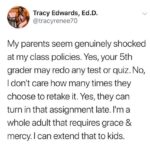I signed up for four classes this semester, and dropped each one in sequence when the parameters of the class didn’t align with the way I wanted to learn from them.
Piano I was by far the class I was most excited to try, having taken Music Fundamentals last semester. I can now read sheet music on a basic level and play simple ditties and that alone was an incredibly exciting experience. It’s like learning the letters/symbols of a new language and then being able to read a menu at a restaurant. In this way, to learn musical notation and its arrangement on the piano is the means to playing a melody, like learning to read a restaurant menu is a means to selecting a meal. I cannot cook the meal, but I can understand its contents and relay that to a fellow diner. But the class was synchronous and I couldn’t/wouldn’t make time for the biweekly class meetings. But I did invest in the cheapest 88-key digital piano that I could find, so I will chip away at this as a hobby. I’ve always wanted to learn to play music and this is the cusp of that long-held dream.
Then came History of Video Games. This should have been a nice course in which to learn some new tidbits about a subject I know a great deal about, but my recent aversion to writing essays and the professor’s chaotic organization of the class materials put me off.
I’d taken a basics of computer science course some years ago, believing I should pivot to programming as the cornerstone of my career. I’ve been in video games for two decades now and it just feels like I need to make a change to maximize my earnings potential (blargh) because getting old in the United States is terrifying. So hey, why not try Intro to Python Programming? That would’ve been fine except the professor chose to utilize a terrifying quiz and exam security tool called Proctorio. I’ve never seen such bullshit in my many years as an online student. I have the privilege to opt out but I feel awful for students who need to take these classes and abide by this garbage. This monitoring software requires a complete view of the desk the student is using and then tracks their eyes during the test in an attempt to prevent cheating. This also assumes a student has the privilege of a private space in which to conduct this nonsense, which of course makes the experience that much worse for students who are likely living with family or must use a computer and connection out in a public space like a library. It’s like having the professor staring at you during the test. This fucking sucks and I’m still mad and disappointed that this is how colleges and universities have decided to tackle cheating for students who must learn online. Needless to say, I noped out.
And finally, I did find a friendlier programming course in Intro to C++, but realized today that I just don’t have it in me to learn this material seriously right now. I dropped it earlier today and now I’m just working on more videos about licensed video games. Our studio recently granted us 3-month paid sabbaticals (what a concept… and a miracle these days), so I’m thinking I’ll use the time when I get the time off in a few years to find a good programming bootcamp in which I can leverage my unhealthy binge-like productivity and come out of it a programming hopeful.
In the meantime, this will be a spring of reading about piano (I’m still hyped for David Sudnow’s takes on it), video games (Boss Fight books can’t release quickly enough), Deep Space Nine (natch), and going on long walks around the bay area.
